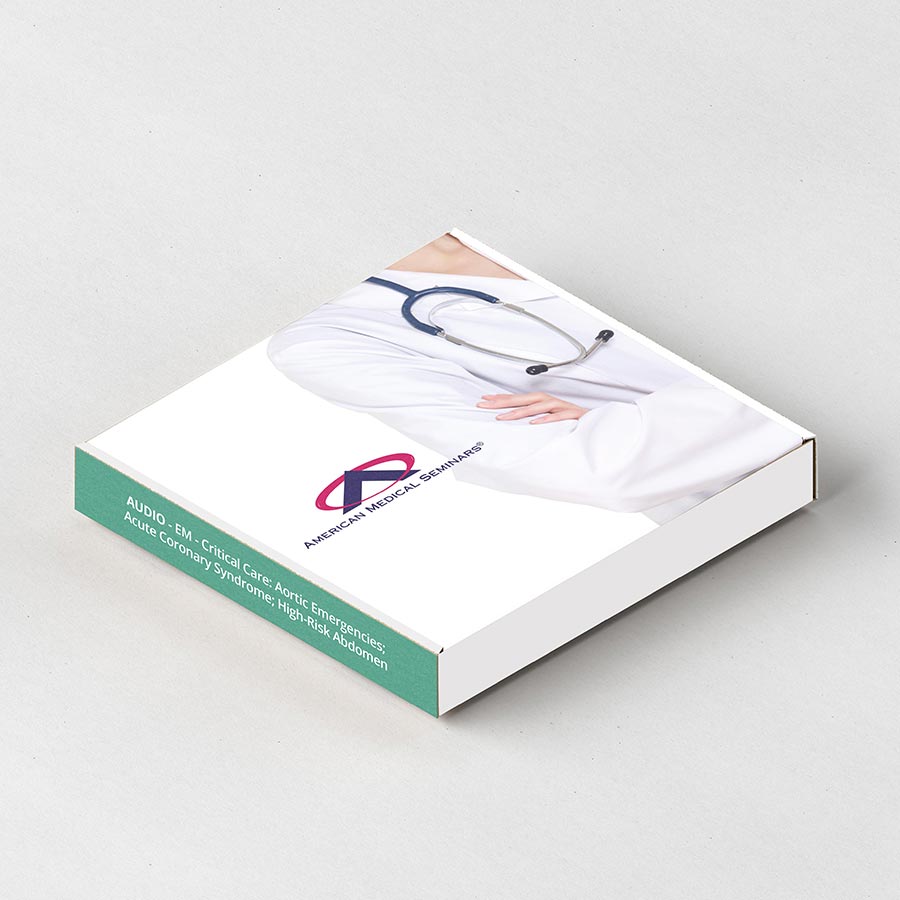Product Description
Title: Emergency Medicine – Critical Care: Aortic Catastrophes; Critical Care Cases; Arterial Blood Gas
Faculty: Andrew Chang, M.D., Ganesan Murali, M.D., Arshad A. Wani, M.D.
Original Release Date: July 1, 2018 Expiration Date: July 1, 2021
TOPIC 1: Aortic Catastrophes.
Upon completion of this session, the participant should be able to: COMP, GL
- Implement AAA Screening as per the systematic review of guidelines.
- Determine the Stanford classification of a particular aortic dissection based on location.
- Apply appropriate initial therapy in the patient with aortic dissection.
- Assess the risk of rupture of abdominal aortic aneurysm based on size.
TOPIC 2: Critical Care Cases for Review – Part II.
Upon completion of this session, the participant should be able to: GL, COMP
- Detect acute renal failure in the ICU and employ appropriate management using the International Consensus Guidelines.
- Detect and assess hypertensive emergencies in the ICU and prescribe appropriate management.
- Develop the management of a patient with acute gastro-intestinal bleeding.
TOPIC 3: Arterial Blood Gas: A Six Step Approach to Rapid Interpretation.
Upon completion of this session, the participant should be able to: COMP
- Distinguish and determine the type of acid base disturbance – Acidosis and Alkalosis.
- Determine the anion gap and its role in defining and treating acid base disorders.
- Assess osmolal gap and urine anion gap.
- Develop the management of acid base disorders by a case based discussion.
- The receipt for any incentive-associated purchase will designate the value of the gift card separately from the cost of the learning activity.
- This incentive may have implications on your tax reporting obligations. Any reimbursed amount must be declared as personal income for tax purposes.


